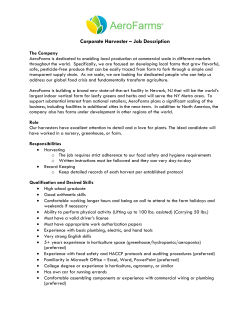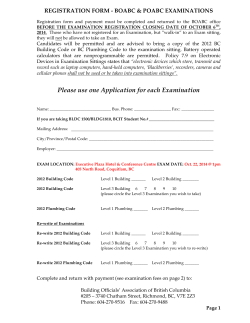
House That! - Complete Building Certification
Plumbing permits no longer required for additions and alterations to existing houses · A new detached home (a class 1 residential dwelling) is not an ‘existing building’ as it does not have existing drainage or a water supply. Compliance assessment will be required under the Plumbing and Drainage Act 2002 (the Act), Part 4 for all of the plumbing work for the new building (i.e. plumbing permit required by council). · A detached shed (a class 10 building) that has a water supply but no drainage is not considered to be an existing building. The absence of drainage means that the relevant local government has not had the opportunity to consider the impacts of providing drainage to the building. Therefore, it is appropriate to require compliance assessment under the Act, Part 4 for any plumbing work on or for the building (i.e. plumbing permit required by council). · A new granny flat built underneath or as an extension to an existing detached residential dwelling is considered to be an extension of an existing class 1residential dwelling. As the extension will rely on the existing water supply and drainage, any plumbing work for the extension will be subject to the notifiable work provisions (i.e. no plumbing approval required). · A new detached residential building BACKGROUND Currently, plumbing and drainage work for additions and alterations to existing houses and town houses) require a plumbing permit from the local council prior to commencement of any plumbing work and mandatory inspections throughout the installation. As of 1 November 2012 plumbing approvals for additions and alterations to existing houses and townhouses will no longer be required. This type of plumbing work will become what is called “notifiable work” where the plumber can do the work and then within 10 days of completing the work lodge a Form 4 to the Plumbing Industry Council (i.e. State Government). The plumber is required to pay a fee of $25.00 if lodged online or $35.00 if lodged by any other means. The money collected by the State Government will be used to fund local government random auditing of the work. The changes specify that notifiable work is only applicable to: · · · Existing buildings (of all building classes where applicable) An extension to an existing house or townhouse A structure (e.g. pool) that is for an (including a granny flat) that is built on the same lot as, but not connected to, an existing residential building is not considered to be an existing building as separate drainage or water supply will be required for the building. In addition as the new building is not attached to the existing building it cannot be considered to be an extension to an existing class 1 residential building. Therefore any plumbing work for the new building will require compliance assessment under the Act, Part 4. existing house or townhouse. Below are some examples as to when a plumbing permit is required or when the work is considered notifiable work: · A detached home (a class 1 residential dwelling) with existing drainage and water supply is considered to be an existing building. The drainage may be a sewer connection or a connection to an on-site treatment plant and a water supply may be a reticulated supply or a water tank supply. Any additional fixtures will be connected to and serviced by the existing drainage and water supply. The notifiable work process may be used for plumbing work for these buildings, including any external plumbing and drainage for the building (i.e. no plumbing approval). · A new townhouse will not be considered to be an existing building even though it is attached to an existing townhouse. This is because the new town house will not rely on or share either the existing drainage or water supply for the existing townhouse. In addition the relevant local government will not have had the opportunity to consider the impacts of a separate dwelling on existing drainage and water supply infrastructure. It is therefore appropriate to require compliance assessment under the Act, Part 4 for any plumbing work on or for the building (i.e. plumbing permit required by council). This newsletter gives a general overview on plumbing laws that affect houses and townhouses only. We recommend that you review the Plumbing and Drainage and Other Legislation Amendment Regulation (No.1) 2012 for your own interpretation.
© Copyright 2025










